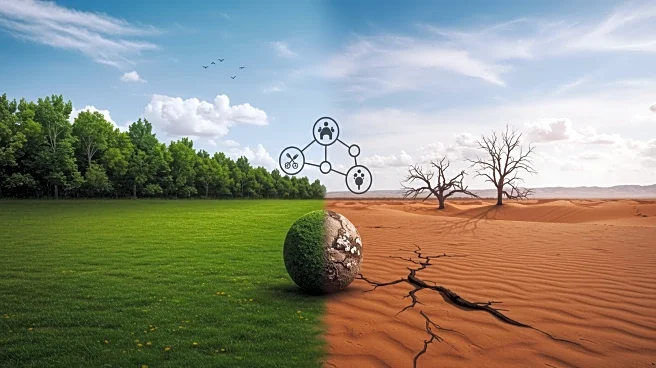What's Happening?
Recent studies indicate that climate change feedback loops are diminishing the effectiveness of Earth's natural carbon sinks, such as forests and oceans, in absorbing excess carbon dioxide. These feedback effects, including extreme heat, droughts, and wildfires, are responsible for approximately 15% of the increase in CO2 levels since 1960. The Global Carbon Project is working to quantify these changes and their impact on carbon absorption. Despite the growth of carbon sinks in absolute terms, their capacity to absorb CO2 is declining due to these feedback mechanisms.
Why It's Important?
The erosion of Earth's carbon sinks poses a significant challenge to climate change mitigation efforts. As these natural systems become less effective at absorbing CO2, more greenhouse gases remain in the atmosphere, exacerbating global warming. Understanding and addressing these feedback loops is essential for developing effective climate policies and strategies. This situation highlights the need for comprehensive climate models and research to predict future changes and guide international climate action, ensuring that efforts to reduce emissions are aligned with the evolving dynamics of natural carbon sinks.











